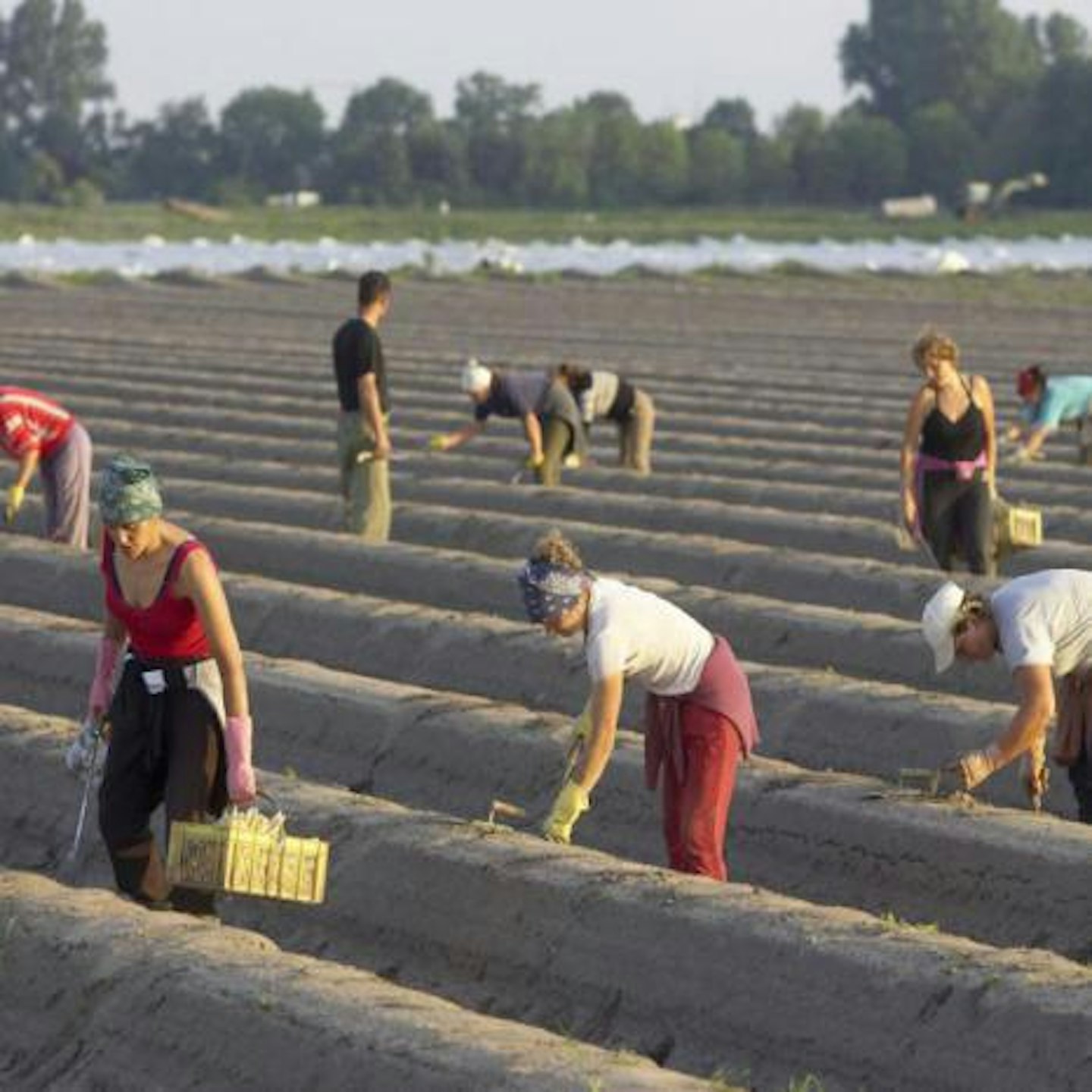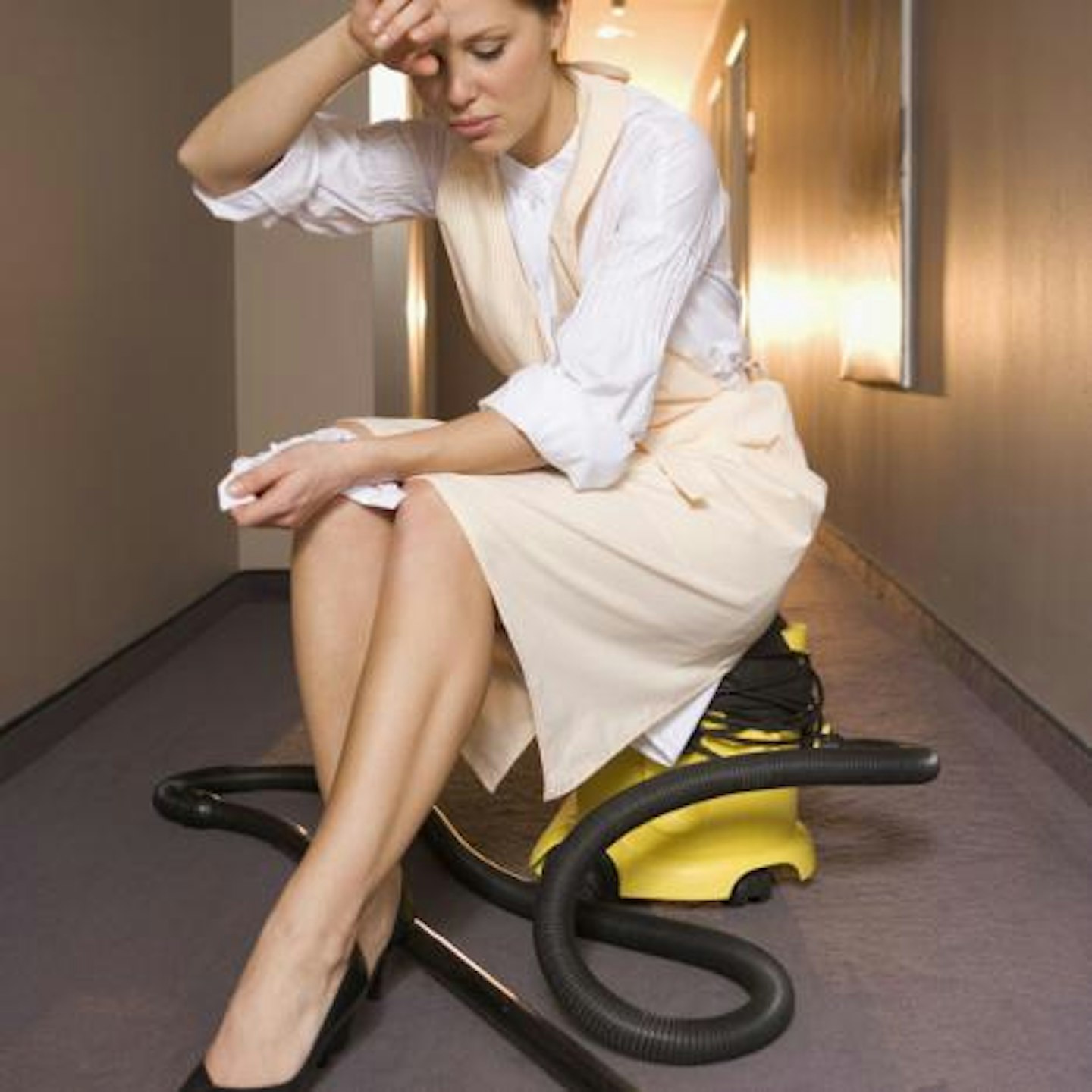Jamie Oliver has featured in a LOT of headlines this week, thanks to a recent claim that Easter European migrant workers make better employees than young Brits.
He told Good Housekeeping, in a joint interview alongside* The Great British Bake Off’s* Mary Berry: “The average working hours in a week was 80 to 100. That was really normal in my 20s. But the EU regulation now is 48 hours,which is half a week's work for me. And they still whinge about it!"
“British kids particularly, I have never seen anything so wet behind the ears!
He added: “I think our European immigrant friends are much stronger, much tougher."
“If we didn't have any, all of my restaurants would close tomorrow. There wouldn't be any Brits to replace them. [People need to] knock out seven 18-hour days in a row… [it's] a basic approach to physical work.”
Strong words from Jamie - but is he right?
YES, JAMIE OLIVER IS RIGHT - MIGRANT WORKERS HAVE A BETTER WORK ETHIC THAN BRITS

****Well, looking at the results of a poll of more than 20,000 people, commissioned by Lord Ashcroft, 49% of respondents agree that migrant workers often do jobs that British people are unwilling to take - and that they do them BETTER.
"I’ve got building work going on either side of me. The Poles and the Serbs and the Slovaks are getting on with it. The one on the other side is English, trousers hanging round their knees. They’re going to be there twice as long and they don’t deserve the opportunity.”
THE DAY THE IMMIGRANTS LEFT
In 2010, the BBC ran a social experiment called The Day The Immigrants Left. Designed to challenge the conflicting opinions of "immigrants take all our jobs" and "immigrants claim all of our benefits", the programme explored the facts of immigration upon the Cambridgeshire town of Wisbech, a town with nearly 2,000 unemployed locals and 9,000 immigrants seeking work.
For the experiment, eleven migrant workers were replaced by unemployed Brits - and the results definitely helped to dispel the myths around the subject of immigration.
-
An Indian restaurant offered four jobs for waiters and trainee cooks; three of the four failed to turn up on the first day. The one who DID turn up was baffled by "all these Indian names" for food and lasted for about two hours.
-
At a potato factory, one new employee rang up on the first day to say he'd been out late and was now too ill to come in, while two more were surprised that they were reprimanded for showing up late to their 5am induction.
-
Over at the asparagus farm, workers were shocked to discover that they would earn just 38 pence per kilo of picked asparagus. While one Polish worker had cleared £176 in a single day by cutting half a ton, the Brits were so light on their weights that their employer had to top up their earnings to meet the minimum wage requirement - something he clearly wasn't happy about.

The show seemed to prove one thing; the British have produced at least (let's not generalise here) a section of a generation who go into work looking for what they are owed, rather than wanting to work. Putting in extra hours to get a job done, taking pride in achievement, aiming to do right by your family and, most of all, wanting to make a life for yourself, seems to have been replaced by people looking to get the most by doing the least possible. People who travel here from far away arrive wanting to work, hungry to succeed and willing to put in the hours to make a life for themselves and their families.
In short, their work ethic is better.
HANDY FINGERTIP FACT
-
Of the 5.5 million people who claimed benefits in February 2011, just 371,000 claimed working age benefits. We think that's because people who travel to a country specifically for work are more likely to find work, any work, and do it well.
NO, JAMIE OLIVER IS WRONG - MIGRANT WORKERS SHOULD NOT BE EXPLOITED BY BRITISH EMPLOYERS
While many of us believe that migrant workers are more likely to put more effort (and more hours) into their work, it is also worth pointing out that this in no way makes extreme working conditions - such as the 100+ hour week proposed by Jamie Oliver - acceptable.
Migrants from Eastern European countries may be, as claimed, happy to work under extreme conditions, but they also need to know what they SHOULD reasonably expect in the workplace. Effective union organisation needs to get underway, to ensure that they do not find themselves misused by their employers - and so that, in turn, union-affiliated Brits do not come off looking less desirable an employment prospect due to their demands for certain privileges (such as, say, a lunch break).

HANDY FINGERTIP FACT
Our working rights are clearly stated on www.gov.uk , where the weekly maximum number of working hours is 48 per week on average. Those over 18 can choose to work for more hours than this, but ONLY if...
-
it is done voluntarily
-
if the worker is over 18
-
if it is given a writing.
An employer "shouldn't sack or unfairly treat a worker (e.g. refuse promotion) for refusing" to work longer than 48 hours per week. As we've mentioned before, workers should look to put 100% of our efforts into being a great employee - but employers need to make sure that they, in turn, reward them for their efforts and recognise that it really is in their benefit to give back (through excellent training, reasonable working hours and, say, a pension or holiday scheme) to employees.
DO WE WANT ROUND-THE-CLOCK WORKERS?
It is also worth considering WHY we would want an economy where some are forced to work round-the-clock hours, while a large number of people are unable to find work at all - is it possible for employers desperate for 80+ hour workers to split the time they crave between two or three people? Minimum wages could be met, unemployment figures could be improved and employees, while giving 100% of their efforts to the job, would be able to have a life outside of the job.
BRITS AREN'T ALL BAD
There's no denying that there are a huge number of young people looking for work, willing to work and striving for success - and figures have shown that the number of apprenticeships applications has seen a significant increase recently. Those who face unemployment are taking action, showing their mettle and proving to employers that they are serious about roles - all while training themselves as valuable members of the workforce. The government just has to make sure to increase supply to match demand - and businesses need to recognise that a Brit with a great work ethic is just as employable as a migrant worker with a great work ethic, even if they are less willing to work under conditions some may consider scandalous.

**WHAT DO YOU THINK? **
Has Jamie landed himself in hot water by adding a racial element to the unemployment debate, or should we all simmer down and listen to what he has to say?
Do you think we need to follow the excellent example of migrant workers and change our work ethic for the better?
Should we be willing to undertake longer hours and less breaks to succeed in the workforce? Or are "whingeing" Brits simply highlighting the fact that migrant workers are treated unfairly - is it wrong to go into a job with a series of minimum expectations?
And is it fair that employers can take advantage of those most in need and exploit them for profitable gain?
Let us know below or tweet us over at @CloserOnline now.
